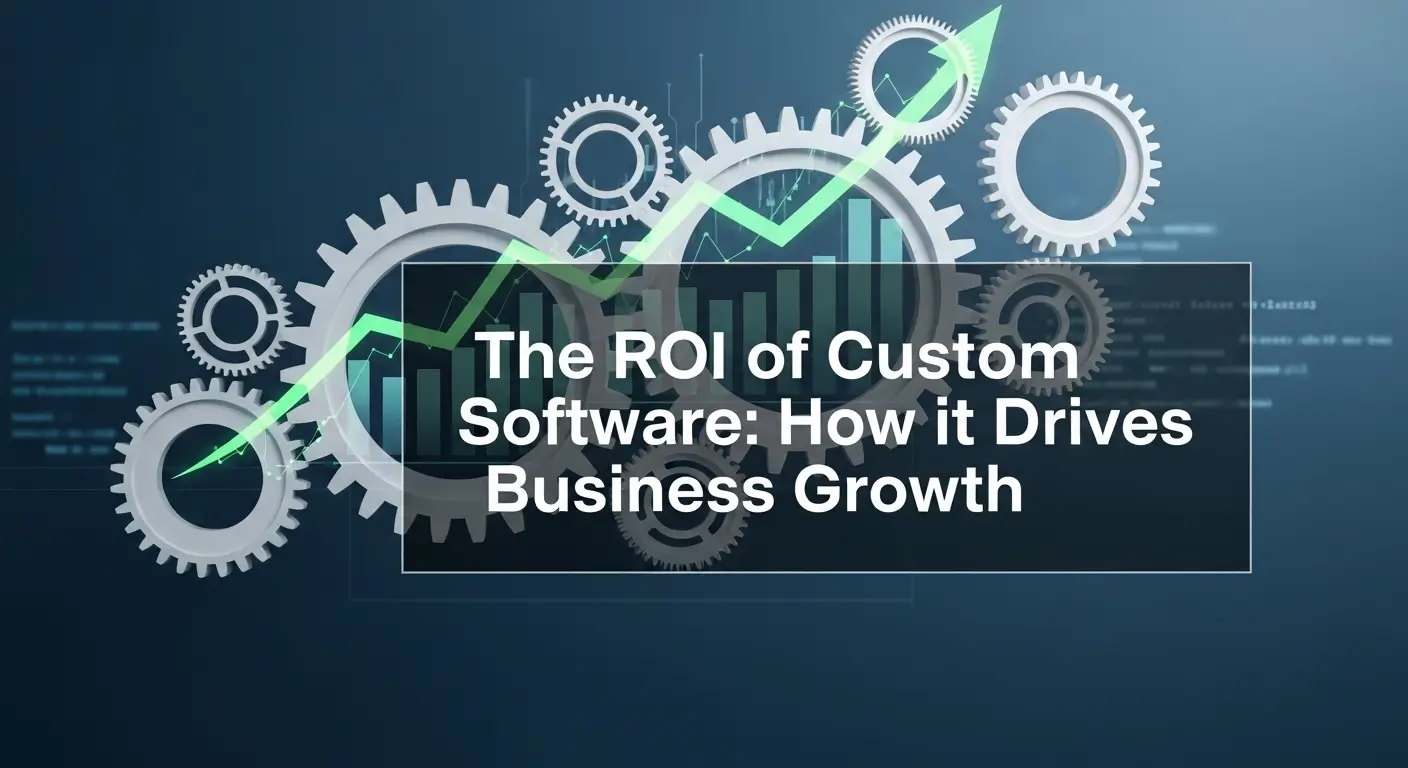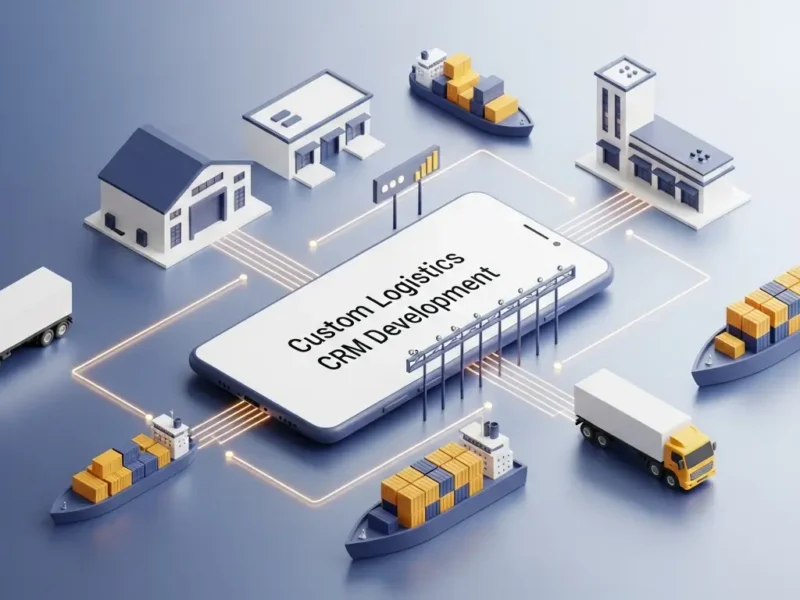In today’s fiercely competitive landscape, businesses are constantly seeking an edge – a way to optimize operations, differentiate their offerings, and accelerate growth. While off-the-shelf software solutions promise convenience, they often come with a hidden cost: compromise. They force businesses to adapt their unique workflows to generic tools, leading to inefficiencies, missed opportunities, and ultimately, hindered growth. This is where custom software emerges not just as an option, but as a strategic imperative.
But for many decision-makers, the initial investment in bespoke software raises a critical question: What is the ROI of custom software? How does tailor-made technology truly translate into tangible business growth? This comprehensive guide will unpack the multifaceted returns on investment that custom software delivers, demonstrating why it’s a powerful catalyst for long-term success.
Understanding Custom Software as an Investment
The immediate sticker shock of custom software development can deter some businesses. Unlike subscription-based, ready-made solutions, custom software requires an upfront investment in design, development, and implementation. However, viewing this solely as an expense misses the larger picture. Custom software is not a cost; it’s a strategic asset – an investment designed to address your specific challenges, capitalize on your unique strengths, and unlock growth potential that off-the-shelf products simply cannot.
Think of it this way: a generic suit might fit, but a custom-tailored suit fits perfectly, enhancing your professional image and allowing for unrestricted movement. Similarly, custom software is built to your precise specifications, eliminating unnecessary features, integrating seamlessly with your existing infrastructure, and perfectly aligning with your operational DNA. This precision is the foundation upon which significant returns are built.
The Tangible Drivers of Business Growth Through Custom Software
The true return on investment of custom software manifests in several key areas that directly fuel business growth:
1. Enhanced Operational Efficiency and Productivity
One of the most immediate benefits of custom software is its power to streamline operations. Generic software often forces businesses into rigid workflows, creating bottlenecks and requiring manual workarounds. Custom solutions, on the other hand, are engineered to automate redundant tasks, simplify complex processes, and optimize information flow.
- Automation of Repetitive Tasks: Free up employees from mundane data entry, report generation, and process management, allowing them to focus on high-value, strategic activities.
- Streamlined Workflows: Design software that mirrors your business logic, eliminating unnecessary steps, improving data accuracy, and reducing processing times.
- Improved Communication and Collaboration: Centralize information and provide tailored interfaces that facilitate seamless interaction between departments, remote teams, and even external partners.
The cumulative effect of these efficiencies is a significant boost in productivity, lower operational costs, and faster execution of critical tasks, all contributing directly to improved profitability and growth.
2. Unrivaled Competitive Advantage and Market Differentiation
In a crowded marketplace, standing out is paramount. Custom software provides a unique opportunity to differentiate your business, offering features and functionalities that your competitors simply cannot replicate with generic tools.
- Unique Product/Service Offerings: Develop proprietary software that enables you to deliver innovative services or products, opening new revenue streams and capturing market share.
- Superior Customer Experience: Create custom portals, mobile apps, or CRM systems that offer a personalized, intuitive, and highly efficient experience for your clients, fostering loyalty and attracting new customers.
- Agility and Innovation: React quickly to market changes and customer demands by modifying your software, rather than waiting for a third-party vendor to release an update that may or may not align with your needs.
This competitive edge isn’t just about gaining market share; it’s about building a stronger brand, enhancing customer satisfaction, and positioning your business as a leader in its industry.
3. Scalability and Future-Proofing Your Business
Off-the-shelf solutions often struggle to scale effectively with a growing business. They might have user limits, data storage restrictions, or lack the flexibility to integrate with new technologies. Custom software is designed with your future in mind.
- Growth-Oriented Architecture: Build a system that can handle increasing volumes of data, users, and transactions without performance degradation.
- Adaptability to Evolving Needs: As your business evolves, your custom software can be modified, expanded, or integrated with new technologies, ensuring your systems always support your strategic direction.
- Avoid Vendor Lock-in: You own the software and its intellectual property, freeing you from dependence on a single vendor’s pricing, feature roadmap, or support policies. This ownership also means you have control over future enhancements, whether you choose to work with the original custom software development company or another provider.
By investing in scalable custom software, you’re not just solving today’s problems; you’re laying a robust foundation for sustainable business growth well into the future.
4. Superior Data Insights and Informed Decision-Making
Data is the new oil, and custom software acts as your refinery. Generic solutions offer standardized reporting, but custom software can be designed to capture, analyze, and present the specific data points most crucial to your business.
- Tailored Analytics and Reporting: Gain precise insights into operational performance, customer behavior, sales trends, and financial health with custom dashboards and reports.
- Real-time Data Access: Make quicker, more informed decisions based on up-to-the-minute information, rather than relying on outdated or aggregated data.
- Predictive Capabilities: Incorporate AI and machine learning features to anticipate trends, identify opportunities, and mitigate risks proactively.
Better data leads to smarter decisions, which in turn leads to optimized strategies, reduced waste, and accelerated growth.
5. Reduced Long-Term Costs and Optimized Resource Allocation
While the initial outlay for custom software can be higher, the long-term cost savings often outweigh these upfront expenses.
- Elimination of Unused Features: Pay only for what you need. Generic software subscriptions often include features you’ll never use, yet you pay for them monthly or annually.
- Lower Maintenance and Support Costs: Custom software is built precisely for your environment, reducing compatibility issues and the need for frequent troubleshooting often associated with integrating multiple off-the-shelf products.
- Improved Security: Implement tailored security protocols and compliance measures from the ground up, reducing the risk of costly data breaches and regulatory fines.
- Increased Employee Retention: Providing employees with efficient, intuitive tools can boost job satisfaction and reduce turnover, saving significant recruitment and training costs.
The cumulative effect of these savings contributes directly to your bottom line, enhancing the overall ROI of custom software.
Calculating the ROI of Custom Software: A Practical Approach
Measuring the ROI of custom software isn’t always as straightforward as a simple financial calculation, but it’s crucial. It involves both quantitative and qualitative assessments:
Quantitative Metrics:
- Cost Savings: Document reductions in labor costs (due to automation), subscription fees (replacing multiple tools), operational overheads, and error rates.
- Revenue Generation: Track increases in sales, new customer acquisition, faster time-to-market for new services, or improved customer lifetime value.
- Productivity Gains: Measure improvements in output per employee, reduced processing times, or faster project completion rates.
Qualitative Metrics:
- Employee Satisfaction: Improved morale and reduced stress from using efficient, user-friendly tools.
- Customer Experience: Higher customer satisfaction scores, reduced churn, and positive brand perception.
- Strategic Agility: The ability to adapt quickly to market changes and competitive pressures.
- Risk Mitigation: Enhanced data security and compliance, reducing potential legal and financial liabilities.
A simplified ROI formula for custom software can be:
ROI = ((Total Gains from Investment – Total Cost of Investment) / Total Cost of Investment) * 100%
It’s vital to establish clear Key Performance Indicators (KPIs)beforedevelopment begins. This allows you to track progress and objectively measure the success of your custom software investment against your strategic goals.
When is Custom Software the Right Choice for Your Business?
While the benefits are compelling, custom software isn’t a one-size-fits-all solution. It’s the right choice when:
- Off-the-shelf solutions only meet a small fraction of your unique needs (less than 70-80%).
- Your core business processes are proprietary and critical to your competitive advantage.
- You require significant scalability and flexibility to accommodate rapid growth.
- Data security, compliance, or specific industry regulations are paramount.
- You aim to create a truly differentiated product or service in the market.
- You’re tired of paying for features you don’t use and dealing with clunky integrations.
The Bottom Line: Custom Software as a Strategic Asset for Growth
The ROI of custom software is far more than just a financial equation. It’s about building a robust, efficient, and future-proof foundation that propels your business forward. It’s about empowering your teams, delighting your customers, and gaining a significant competitive edge in an ever-evolving digital world.
By investing in custom software development, you’re not just buying lines of code; you’re investing in operational excellence, innovation, scalability, and ultimately, sustainable business growth. It’s a strategic decision that pays dividends long after the initial development, cementing your position as a forward-thinking, market-leading enterprise.



